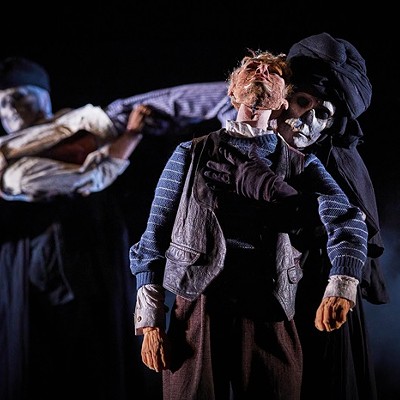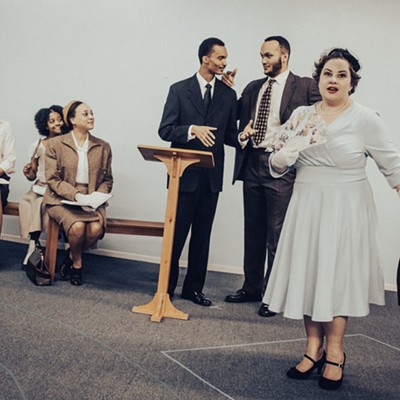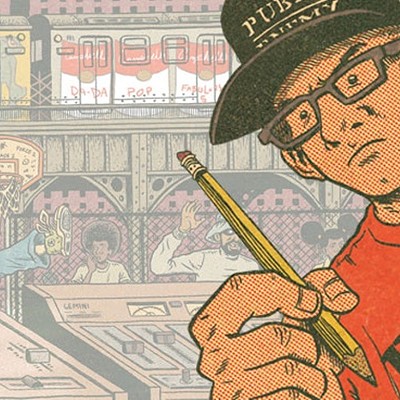Like many actors of color, Fajer Kaisi often finds his opportunities on stage and screen limited in number and range. “It’s usually falafel guy, cabbie or terrorist,” quips the Iraq-born Kaisi, who grew up a Canadian citizen. “Maybe counterterrorist, if we’re lucky.”
There are exceptions. So in addition to spots on Nurse Jackie, Law and Order and 30 Rock, Kaisi’s done Shakespeare, for instance. And once, he says, “I got to play a character named ‘Graham,’ who was a husband and a children’s-book author, and I was ecstatic about that.”
Kaisi has another complex role in Pittsburgh Public Theater’s new production of Disgraced. Since winning the 2013 Pulitzer Prize for drama, Ayad Akhtar’s play about identity, assimilation and Islamophobia has only become more relevant. Kaisi plays Amir, a Pakistani-American corporate lawyer living in Manhattan who becomes entangled in controversy over his relationship with an imam at a local mosque — a relationship catalyzed by Amir’s Pakistan-born nephew.
The play’s themes boil over during a dinner scene at the apartment Amir shares with his wife, Emily, a white artist whose interest in Islamic art counterpoints Amir’s apparent distance from his ethnic roots. Their guests are an African-American attorney and her Jewish husband, who happens to be a museum curator with an interest in Emily’s work. The Public’s production is directed by Tracy Brigden (of City Theatre); the cast includes Lisa Velten Smith, Justin Ahdoot, Nafeesa Monroe and Ryan McCarthy.
Previous productions — from off-Broadway to London — have garnered strong reviews and praise for the sharp, witty writing of Akhtar, also known for his 2012 novel American Dervish.
The questions of identity echo perhaps most strongly in Amir. “Amir is … very self-aware, almost self-conscious about it,” said Kaisi, speaking at the Public before rehearsal one day last week. But Amir also feels compelled to voice his opinion. “He’s kind of a Greek-tragic character in that way. That’s the flaw — he can’t help himself.”
Kaisi himself was raised in a secular Muslim family, and grew up speaking French in multicultural Montreal. But cultural identity is as complex as prejudice itself. “I think it’s so complex that even Amir doesn’t know that he’s expressed the answer,” says Kaisi. He adds, “I think people are going to be talking about it when they leave the theater."















